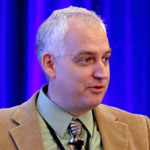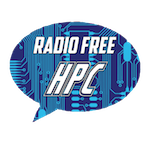Today Cray rolled out the new Cray CS-Storm high-density accelerator compute system. Based on the Cray CS300 cluster supercomputer line acquired from Appro in 2012, the Cray CS-Storm features up to eight Nvidia Tesla GPU accelerators and a peak performance of more than 11 teraflops per node.
Archives for August 2014
Supercomputing Spot-On Cancer Treatment
“By running the supercomputer simulations, our goal is to understand how to properly use ionization chambers in the presence of a magnetic field,” said Michelle Mathis from the MD Anderson Cancer Center. “The results of our research will facilitate safe use of the MRI-linac systems, which in turn will be used to treat cancer patients more effectively.”
Supercomputing 101: A History of Platform Evolution and Future Trends
This talk gives a history of the various eras of High Performance Computing as defined by the dominant platforms, starting with mainframes and continuing through vector architectures, massively parallel architectures, and the current emerging trends that will define the upcoming exascale era.
Video: How to Create Reducers with OpenMP
When multiple threads need to work together to perform a combined mathematical operation such as a sum, one way to avoid race conditions is using reducers. In this video from Go Parallel, Jeff Cogswell from Slashdot Media shows you how to accomplish reducers with OpenMP.
XSEDE Powers Research into Healthcare Contract Economics
Over at NICS, Scott Gibson writes that researchers are using XSEDE supercomputing resources to study the complex economics of industrial organization and contract theory.
Challenges on the Road to HPC Virtualization
Although both the enterprise and HPC can benefit from virtualization, the two have had dissimilar requirements. This article is the second in an editorial series that explores the benefits the HPC community can achieve by adopting HPC virtualization and cloud technologies.
Radio Free HPC Looks at the Zennet Initiative
In this podcast, the Radio Free HPC team looks at the Zennet initiative, a “public, distributed, and decentralized Supercomputer.” As the brainchild of Israeli computer scientist Ohad Asor, Zennet is essentially a free-market alternative to AWS that sounds a lot like the marriage of BitCoin and SETI@Home.
Supercomputing 102: The Toolbox of a Successful Computational Scientist
“Successful computational scientists are experts in both a scientific field, such as chemistry, physics, or astrophysics, knowledgeable about both mathematical representations and algorithmic implementations, and also specialize in developing and optimizing scientific application codes to run on computers, both large and small. A truly successful computational science investigation requires the “three A’s”: a compelling Application, the appropriate Algorithm, and the underlying Architecture.”
Job of the Week: HPC Solutions Architect at Amazon
Amazon in San Francisco is seeking an HPC Solutions Architect in our Job of the Week.
With ACME, National Labs Collaborate on Climate Change
In an unprecedented collaboration, eight national laboratories will apply supercomputing resources to a new climate study with the National Center for Atmospheric Research. The project, called Accelerated Climate Modeling for Energy, or ACME, is designed to accelerate the development and application of fully coupled, state-of-the-science Earth system models for scientific and energy applications.












